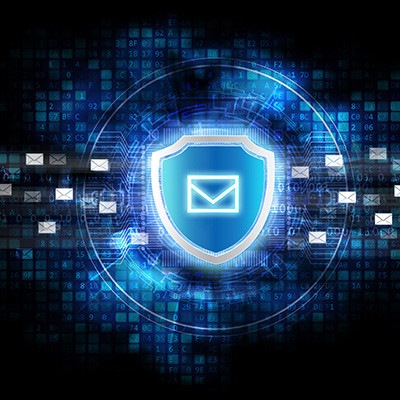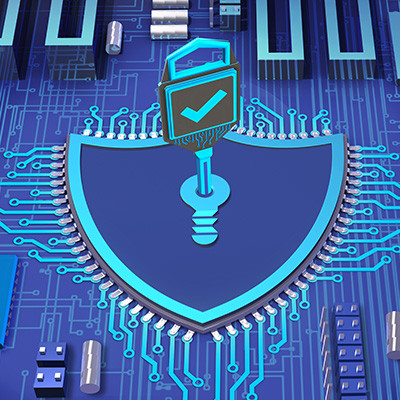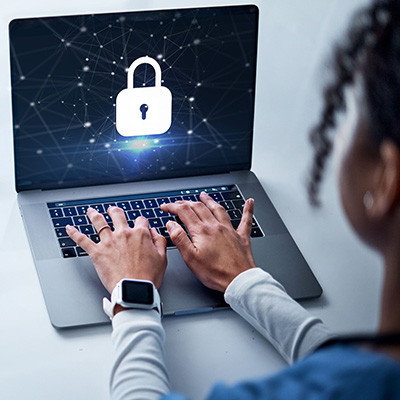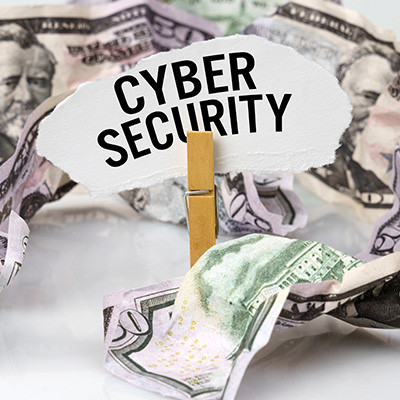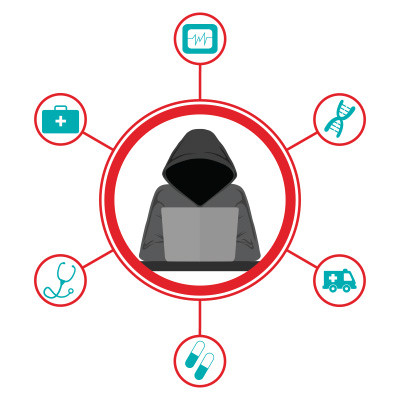JS Business Solutions Blog
It’s easy to think of email as something that just works. You open up Outlook or log into Gmail and your mail is there. Most people aren’t even aware of the vast, complex set of systems required for email to even work—and we don’t blame you. It’s extremely complicated.
That being said, if nobody is actively managing your email, providing protection for the underlying technology, and making sure that it was and remains configured properly, it’s possible that your email could be working fine while opening you up for unseen threats.
Cybercriminals aren’t looking to play fair against businesses. They don’t care how big or small you are, they don’t care about what services you provide, or what good you offer for the community. You could be a children’s hospital or a single mother selling homemade mittens out of your dining room, you could be a school, an assisted living facility, or a Fortune 500. Either way, your organization is an equally viable target for cybercriminals.
Cybercrime is a concern for businesses of all—and we mean all—sizes, from the small mom-and-pop shop down the road to the multinational enterprises, and it’s a concern for a variety of reasons. Let’s take a look at some of the reasons that these massive businesses worry about cyber incidents and see if there isn’t some common ground.
If you read our blog regularly, you probably saw the post we shared the other day talking about the various cybersecurity issues that your business could very well be damaged by without the right precautions. We wanted to build on that conversation, so what follows are the measures to help you take these precautions.
Cyberattacks are horrifically dangerous to any business, especially for small ones that might not have the resources to protect themselves with top-dollar solutions or preventative solutions to bounce back afterward. Today, we want to explore what really causes cyberattacks and how even slight changes to behaviors and situations can be indicative of danger.
Many individuals are concerned about the future of AI, including the White House, which encouraged companies like Amazon, Anthropic, Google, Inflection, Meta, Microsoft, and OpenAI to commit to helping with the management of artificial intelligence. Other companies, including Adobe, Cohere, IBM, Nvidia, Palantir, Salesforce, Scale AI, and Stability, have joined in this pledge to maintain “the development of safe, secure, and trustworthy AI,” according to the White House.
With Cybersecurity Awareness Month just around the corner, now seems to be the appropriate time to consider your own business’ cybersecurity. While there are many, many factors that contribute to how protected your business is against threats, one of the most impactful and insidious is how receptive your employees are (or aren’t) to security-centric behaviors.
Data privacy has never been such an important issue for businesses and individuals alike. In some places, calls for overarching legislation to protect consumers have often been met with significant pushback by lawmakers who are reluctant to put extra regulations on businesses, while others have passed important laws dictating how organizations handle individual data.
Have you tried using Enhanced Safe Browsing in your Google Chrome browser? This feature has been a part of the browser since 2019, and it was implemented with the intention of preventing phishing attacks. This feature was also recently added to Gmail. Here’s how you enable it, as well as why it might not be the solution you’re hoping for.
Encryption, like so many elements of cybersecurity, is often seen as just another buzzword that the public simply doesn’t need to concern themselves with… but as cyberattacks continue at their current rates, the opposite is the actual truth. Let’s talk about what encryption is, and why it has become more important than ever that it is put into practice in both professional and private life.
Data is commonly regarded as one of a business’ most valuable resources. As such, it is critical that you protect it from threats of all kinds, including data leaks. Data leaks are nothing to take lightly, as their impacts range from a serious hit to your business’ reputation to an equally serious hit to your business’ finances. Obviously, this is something to be avoided, so let’s discuss how you can do so.
Security is part of running your business where you have to adapt and make changes on the fly. One best practice that has always been a staple of any security infrastructure, however, is the virtual private network. The VPN might be important, but it’s one aspect of business technology that is changing thanks to the adoption of zero-trust access policies.
If you’ve spent any time at all reading our blog—or even looking at the topics we cover, for that matter—you’ve seen how often we talk about the importance of your business’s cybersecurity. The fact that we have to is frankly a little depressing. Trust me, I’d love to be able to spend all my time bringing your technology to the next level, instead of keeping ne'er-do-wells from undermining it. However, the reality is that every organization needs to focus on its cybersecurity, and this is becoming more and more the case all the time.
There are countless threats out there that can leave your business in a worse state than before, including viruses and malware, ransomware, data breaches, and other types of phishing attacks. It’s hard to go about your day without worrying about these types of threats, especially in today’s connected business world. However, the ones you need to watch out for most of all are the ones that are so personal you’d never expect them.
It’s more important than ever to know just how much your business currently spends (and should plan to spend) on cybersecurity, both of which can be addressed by understanding the goal of cybersecurity protections and how they affect your company’s defenses. Let’s consider how much you should spend on cybersecurity, as well as what protections that spending can afford.
Hackers and scammers are everywhere and are continuously littering your business with situations that could put its operations in jeopardy. One of the most hacked industries is healthcare, as hackers make a point at going after patient information. Let’s go through some of the reasons why hackers find health data so attractive.


